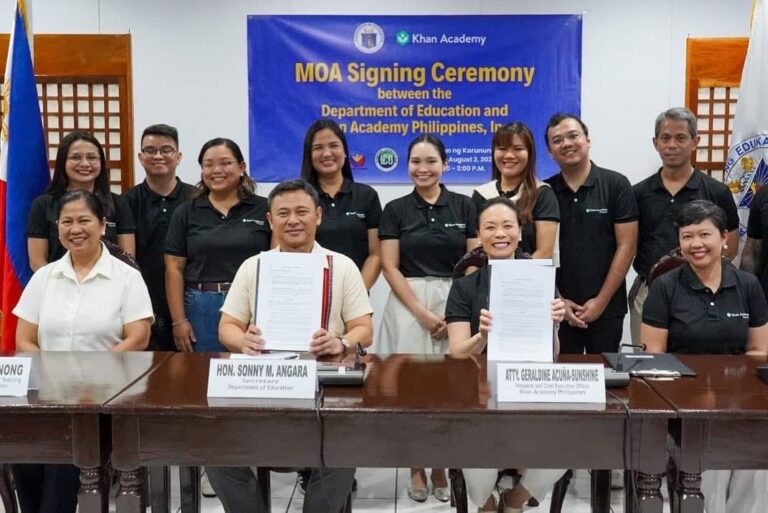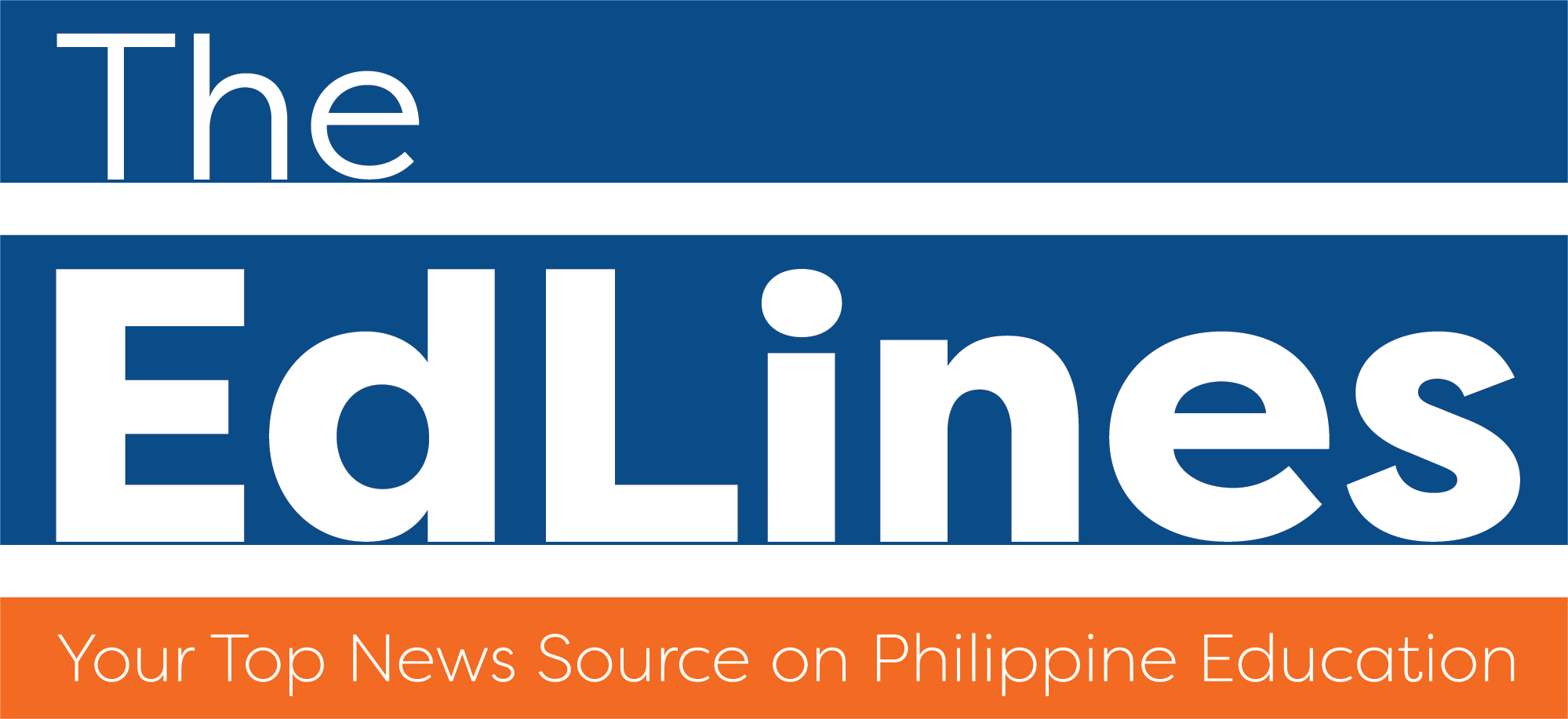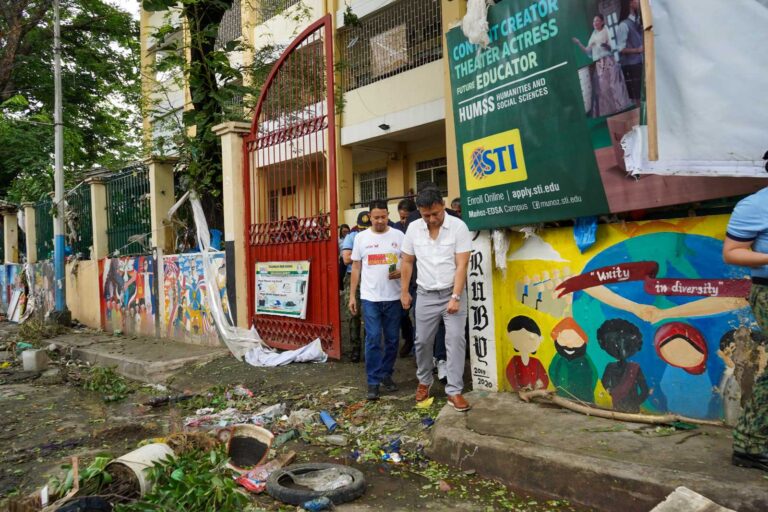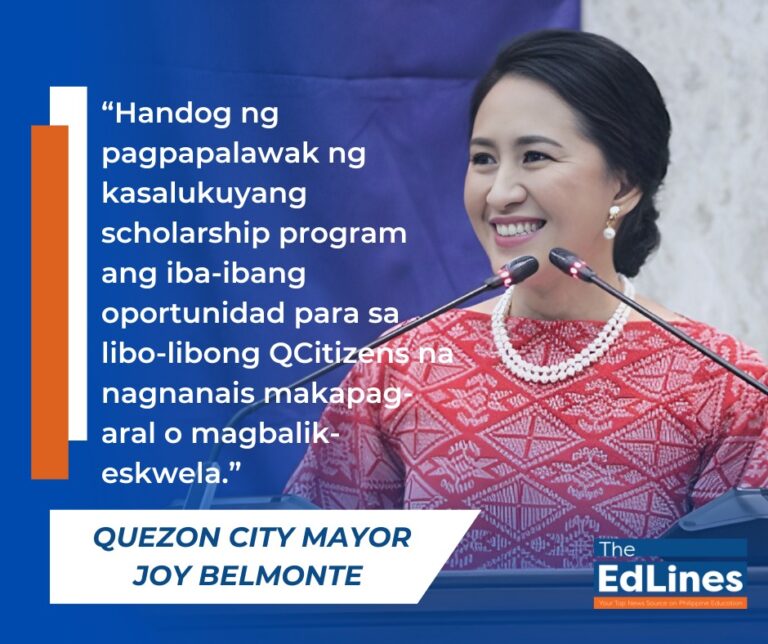
Photo courtesy of Sonny Angara Facebook page.
The Department of Education (DepEd) has partnered with Khan Academy, a well-known online education nonprofit, to improve learning in about 1,000 public schools nationwide.
The agreement aims to enhance the skills of Filipino students and boost their scores in the 2025 Programme for International Student Assessment (PISA) exams.
Education Secretary Sonny Angara signed the agreement on Aug. 2 with Geraldine Acuña-Sunshine, president of Khan Academy Philippines.
Angara expressed hope that the digital learning materials provided by Khan Academy will help Filipino students perform better in key subjects such as math, science, and reading.
“Definitely, this will help in our PISA scores,” he said.
“There’s really the dream of differentiated instructions. This is what Khan Academy is all about, using technology to cater to the needs of the students,” Angara added.
He described it as a valuable tool for students, parents, and teachers, praising its functionality and impact.
The initiative comes as Filipino students face challenges in international assessments. Angara noted that while immediate improvements might not be visible in the 2025 PISA tests, he expects positive results by 2029.
Many students already use Khan Academy’s resources, which are accessible through its YouTube channel and mobile app.
The channel boasts over 8 million subscribers and has garnered more than 2 billion views.
Khan Academy’s digital materials will focus on subjects where Filipino learners typically lag behind their peers.
Acuña-Sunshine emphasized that the partnership will provide teachers with new tools to enhance their teaching methods.
“This can help those teachers teach better, [and] allow a different way for students to take in the subjects and understand it in a different way,” she said.
However, the project faces challenges, particularly in remote areas where schools often lack computers, reliable internet, and adequate teaching staff.
Under the agreement, schools must ensure they have high-speed internet connections and enough devices for students.
Angara, in a social media post on Aug. 3, highlighted the importance of this initiative, saying, “Kasama ito sa bilin ng ating Pangulo Bongbong Marcos na dapat palalimin ang abilidad ng ating mga estudyante at guro sa mga makabagong teknolohiya, para tumaas ang kalidad ng edukasyon sa bansa. [This is part of President Bongbong Marcos’ directive to enhance the abilities of our students and teachers in modern technologies, to raise the quality of education in the country.]”


